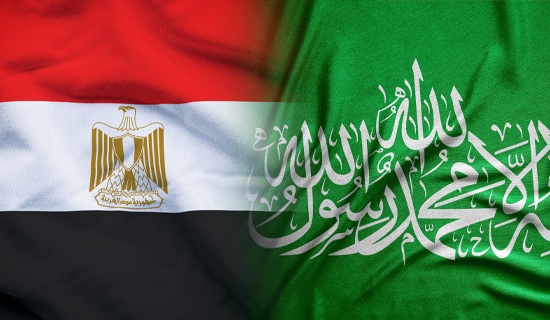Introduction
October 18, 2023 was Transition Day under the JCPOA – the nuclear deal with Iran whose directives have been de facto violated for many months. On that way, the United Nations restrictions on Iran's purchase and sale of weapons, particularly drones and missiles, expired, and Iran can now sell them to any country that wants them, and can acquire parts and weapons for its missile and drone industries that until now it could not. Thus, Iran can strengthen its might and the might of the resistance axis that it has built in the Middle East, and can threaten its neighbors and even Europe and the U.S.
Europe
The European countries, that are partners to Ukraine's struggle to defend itself against the Russian invasion, are well versed in the damage that can be caused by the suicide drones that Iran provided to Russia. The European countries' recurring protests against Iran over its sale of these weapons to Russia, and its use of them against the civilian population, have been met with sweeping Iranian denials despite the proof on the ground.
The three European JCPOA partner states – the U.K., France, and Germany – announced on October 17 that they are leaving the sanctions on Iran's missile and weapons industry in place even after the October 18 expiration date.[1] This is out of an understanding that Iran is a threat to the peace of European countries.[2]
At the same time, the European Council stressed that "these steps do not amount to the imposition of additional EU sanctions on Iran. Moreover, all EU sanctions that had already been lifted under the JCPOA remain lifted."[3]
U.S.
The Biden administration's policy vis-à-vis Iran so far has been aimed at arriving at understandings in various areas, after President Biden's election promise to return to the JCPOA. Thus, Iran recently obtained this administration's agreement to its enrichment of uranium to a level of 60% with no expiration date, while the JCPOA allowed it only a limited quantity of uranium enriched to 3.75%.
President Biden, who was deeply shocked by the Iranian proxy Hamas's massacre and abduction of civilians from Israel, has emphasized that he and his administration are standing alongside Israel, and has dispatched, inter alia, two U.S. aircraft carrier strike groups to the region to deter the sides from opening a new front, which would mean a regional and even a global war. However, in recent days the Biden administration did not respond to drone attacks by Iran-backed Shi'ite militias operating under Iranian patronage on American bases in Iraq and Syria.[4] In Yemen, on October 19, an American destroyer intercepted 19 drones and cruise missiles launched by the Houthis, the Iran-backed Shi'ite militia operating at Iran's direction, toward Israel.[5]
Assessment
As more time passes, it becomes increasingly clear that Iran played a central role in the October 7 attack on Israel by Hamas, which is just one of Iran's proxy organizations. Iranian regime mouthpieces boasted that the attack had been planned and organized by the late IRGC Qods Force commander Qassem Soleimani and that Iranian Supreme Leader Ali Khamenei had hinted at the "complete conquest" of Israel in August 2022 and August 2023 (see MEMRI Special Dispatch No. 10857, October 12, 2023). The Iranian news agency Tasnim published an exclusive report stating that Hamas's "Mighty Pillar" drills were the resistance organizations' planning for an attack on Israel, and that the Palestinians had trained for the October 7 "Al-Aqsa Flood" attack for four years (see MEMRI Special Dispatch No. 10889). Similarly, according to the Iranian regime mouthpieces, IRGC forces and Iran-backed Shi'ite militias from Syria and Iraq have been redeployed in the Golan Heights (see MEMRI Special Dispatch No. 10888), and the Iranian populace has been mobilized to send volunteers to Palestine to fight Israel (see MEMRI Special Dispatch No. 10878). Also notable is the call in Iran on Iranian officials not to speak out about Iranian involvement in the Hamas-Israel conflict, especially on the subject of nuclear and strategic weapons, for fear of harming Iranian interests and international status (see MEMRI Special Dispatch No. 10680).
The Iranian regime continues to conceal its involvement in operations by its militias that it mobilizes against the West. It denies its part in arming Russia in the war against Ukraine, as well as its part in planning and organizing the slaughter of civilians in Israel by its proxy Hamas
The European governments and the Biden administration, now that they are informed about the scope of the slaughter in Israel, are beginning to realize that Iran sees the eradication of Israel and the Jews as its top priority, and that this is part of the cultural war that Iran is waging against the West and Western civilization. In February 2019, to mark the 40th year of Iran's Islamic Revolution, Supreme Leader Khamenei announced the ultimate goal: a global revolution and the creation of a world Islamic civilization (see MEMRI Special Dispatch No. 7981, Iranian Supreme Leader Ali Khamenei Announces The Goals Of 'The Second Phase Of The Islamic Revolution' For The Next 40 Years – Part Two: 'You Must Preserve Your Revolution... And Bring It Ever Closer To Its Great Aspiration – The Creation Of A New Islamic Civilization, And Preparations For The Rise Of The Sun Of The Mahdi', April 3, 2019). The immediate goal of this vision, in the second of five phases of the Islamic Revolution, is, Khamenei said, "the challenge of mighty Iran's presence at the borders of the Zionist regime" and the elimination of Israel (see MEMRI Inquiry and Analysis No. 1441).
Iran is relying on the West's not activating the sanctions snapback apparatus, and is galloping towards attaining military nuclear power. Its missile and drone arm threatens the peace of the region, and it aspires to expand this might, especially after Russia announced that after October 18, 2023 it sees no restrictions on cooperating with Iran in this matter, and after the severe blow to Israel.
Israel was badly surprised, and its defense concept collapsed, in the face of the Iran/Hamas planning, even though its signs were clearly visible. The West must not adhere to a similar concept vis-à-vis Iran – because Iran and its resistance axis have built, and constitute, a major threat to world peace.
Iran Threatens Europe And The U.S. In Order To Dissuade It From Leaving Arms Trade Sanctions In Place
In recent months, the regime mouthpieces have warned Europe in particular, as well as the U.S., against leaving the sanctions on arms trading in place. In these warnings, these media outlets, as well as top Iranian officials, are emphasizing the fear in the West that Iran will become a regional power and that it has threatened to use its missile force against Western targets in the region.
SUPPORT OUR WORK

The following are examples of these Iranian threats:
IRGC-Affiliated Iranian News Agency Tasnim: Europe Fears It Will Be Attacked By Iran's Missiles; "If Europe Doesn't Want Iranian Missiles To Reach London And Paris, It Must Cease Its Aggressive Behavior... The European Countries Fear Iran's Emergence As A Regional Power"
The Tasnim news agency, which is affiliated with the IRGC, stated in a July 26, 2023 article that the European countries' fear of Iran's missiles is warranted, and went on to stress that there are two reasons for this fear. It said: "As much as Iran's development of its missile program truly constitutes a threat to Europe, the main concern of the European countries is the issue of Iran's emergence as a regional power."
Defining which European and U.S. threats Iran considers existential to it, Tasnim wrote that these would include a) adding the IRGC to the list of designated terror supporters; b) a threat to use nuclear weapons against it; and c) the effort to extend the duration of the restrictions on Iranian missiles and drones. Tasnim clarified that Iran must develop an effective missile arm in order to deter Europe.
It should be noted that despite Iran's claim that it is limiting its missiles' range to 2,000 kilometers,[6] it has launched satellites into space. This capability proves that Iran can indeed launch intercontinental ballistic missiles (see MEMRI Inquiry and Analysis No. 1518).
The following are the main points of the article:

Iran unveils its Fattah hypersonic missile, which it claims can travel at 15 times the speed of sound (Source: Stephane's/ZUMA Press Wire/Shutterstock/ Tasnim, July 26, 2023)
"Iran has voluntarily restricted the range of its missiles to 2,000 kilometers... so as to preserve peaceful relations with Europe. As Gen. Hajizadeh, the IRGC Air Force commander, announced, Iran has deliberately restricted the range of its missiles in order to 'preserve the honor of the Europeans,' while reports, including the recent report by [the U.S. news outlet] Politico, show that Iran has the technical capability to increase the range of its missiles. In a 2022 report, the [Israeli] newspaper Haaretz explicitly stated that Iran has the capability to develop intercontinental missiles. At the same time, at least according to official and public positions, Iran has not shown a practical desire to increase its missiles' range in order to include Europe within its radius.
"Nevertheless, in recent years there have been signs of change in the views of the Iranian authorities. Thus, the IRGC commander has warned that 'if Europe does not comply [with Iran's demands not to extend the duration of the sanctions], Iran will increase the range of its missiles'...
"Situations such as the possibility of including the IRGC in the list of terror organizations will change Iranian-European relations. Existential threats are threats aimed directly at the survival of countries, such as the threat to use nuclear weapons or place an official body of Iran's armed forces in the crosshairs [i.e. to add the IRGC to Western lists of designated terrorist organizations]... Likewise, the effort by European countries to extend [the duration] of the restrictions on Iran's missiles – as was emphasized in the declaration by three European countries a few days ago – is not something Iran could tolerate.
"In effect, what motivates Iran's development of its missile program so that it becomes a concrete threat to Europe is the increase in hostility [towards Iran] on Europe's part... A Politico report that advises the Europeans to levy additional restrictions on Iran will actually lead to the very outcome that Europe fears. If Europe does not want Iranian missiles to reach London and Paris, it must cease its aggressive behavior... In effect, with regard to the increase in threats from Europe, Iran's defense capability has also increased...
"Therefore, before the European countries worry about Iran's missile plan, it is reasonable for Iran to feel threatened by Europe's offensive weapons. While the declared range of Iran's missiles has not yet exceeded 2,000 kilometers, the European countries already have long-range intercontinental missiles. England and France, that have intercontinental ballistic missiles that coincidentally can also carry a nuclear warhead, declared four days ago that Iran's missile program is violating international regulations. Additionally, Europe has a developed air force...
"In light of these, and in light of the historic experience of European hostility in the Middle East, it is natural for official Iranian elements to be concerned for the future of Iran's security. For this reason, developing Iran's missile program such that Europe will be concerned about it is a realistic approach that every independent country in the world takes. Therefore, the European governments should [indeed] be worried about Iran's missile development, in light of the threats that they are issuing against Iran. This fear [of Iran's missile program] constitutes deterrence [vis-à-vis Europe].
"However, even though development of Iran's missile program really does constitute a threat to Europe, the main concern of the European countries is the issue of Iran's emergence as a regional power.
"This is why there was a media uproar against Iran's nuclear and missile programs. The reason for this is that the nuclear and missile programs are necessary in order to develop the impact of every rising power in the current international order."[7]
IRGC Air Force Commander Ali Reza Tangsiri: The Abu Mahdi Cruise Missile Can "Make The Enemy's [i.e. U.S.] Aircraft Carriers Useless... [It Has] The Capability To Destroy All Types Of Ships And Destroyers"
IRGC Air Force commander Ali Reza Tangsiri said at a July 25, 2023 ceremony marking the delivery of the Abu Mahdi cruise missile to the Iranian naval force that this missile, with a range of 1,000 kilometers, can make the enemy's (i.e. the U.S.'s) aircraft carriers useless. It should be noted that the missile is named for Abu Mahdi Al-Muhandis, deputy commander of the Popular Mobilization Forces in Iraq, who along with IRGC Qods Force commander Qassem Soleimani was killed in January 2020 in a U.S. drone strike. Attending the ceremony was Iranian Defense Minister Mohammad-Reza Gharaei Ashtiani, IRGC Air Force commander Tangsiri, and Iranian Navy interim commander Amir Kaviani. Tangsiri said:
"One of the things the Abu Mahdi missile can do is to repel the enemies from the country's coast. We can fire this missile from deep in the [Iranian] interior. The Abu Mahdi missile helps us precisely focus [on] the targets and strike the enemy...
"If the [Iranian] ships [armed with this missile] sail 1,000 kilometers [from the Iranian coast] and fire this missile [another] 1,000 kilometers, then that enemy or aircraft carrier [that is targeted] will have to withdraw 1,000 kilometers – that is, the aircraft on this aircraft carrier will be rendered ineffective. Additionally, the Abu Mahdi missile can track and attack multiple targets. This missile is less likely to be identified because it flies very low. I congratulate our dear [colleagues] on this success with the blessing of the martyr Abu Mahdi who was murdered by the criminal America and we will wreak vengeance against our enemies with it...

IRGC Navy commander Ali Reza Tangsiri (Source: Tasnim, Iran, July 25, 2023)
"Abu Mahdi is the first long-range naval cruise missile with artificial intelligence in its hardware that is linked to the planning of flight lanes and command and control system, and it can overcome natural and artificial obstacles such as enemy radar. Because it uses powerful explosives, this missile's warhead can destroy all types of ships and destroyers. It can be fired from deep within Iran, and from a completely hidden spot, at moving naval targets using an advanced integrated navigation system and a powerful engine."[8]

The Abu Mahdi missile (Source: Tasnim, July 7, 2023)
To view the Tasnim video of the unveiling of the Abu Mahdi missile on MEMRI TV, click here or below:
*A. Savyon is Director of the Iran Media Studies project.
[1] See European Council announcement of its extension of the sanctions: Iran: Council maintains restrictive measures under the non-proliferation sanctions regime after the JCPoA Transition Day.
[2] Another factor in the change in Europe's approach to the Iranian regime was Iran's brutal human rights violations and iron-fisted repression of the young peoples' protests in Iran in the past two years.
[3] Iran: Council maintains restrictive measures under the non-proliferation sanctions regime after the JCPoA Transition Day.
[4] Reuters.com/world/us-troops-attacked-iraq-syria-alert-more-strikes-2023-10-19, October 20, 2023.
[5] Iranian sources have stated that the cruise missiles were aimed against American vessels, not Israel, while the Pentagon said that the launch was aimed at Israel. Tasnimnews.com/fa, October 21, 2023; Apnews.com/article/yemen-navy-warship-missiles-intercepted-2f5fc9c8a3737f762b29d5c53ec08a5b, October 20, 2023.
[6] See MEMRI Inquiry and Analysis No. 1357, IRGC Commander Jafari In Message Meant To Reassure Europe: Right Now, We Are Settling For Missiles With 2,000-Km Range – A Range That Covers U.S. Forces In The Region,
November 3, 2017.
[7] Tasnimnews.com/fa/news, July 26, 2023.
[8] Tasnimnews.com/fa/news/, July 25, 2023.




